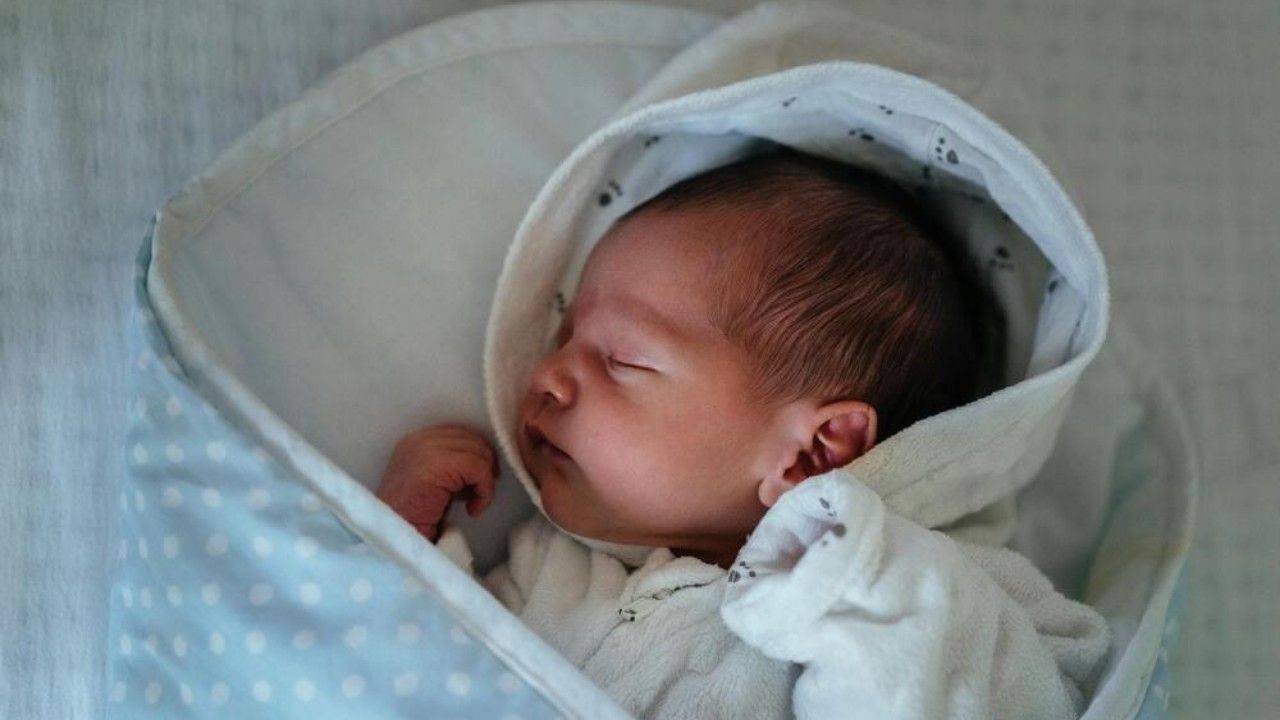How to Help Your Baby Sleep Through the Night
Jul 10, 2025
Caring for a newborn may feel overwhelming, especially when it feels like your baby doesn't want to sleep. While consistent sleep is crucial for their development and your well-being, it's helpful to remember that achieving it is a gradual process, not an overnight solution.
To effectively guide your baby toward better rest, it's essential to first understand their unique sleep patterns, initially dominated by active REM sleep. This understanding is key to setting realistic expectations and navigating the process with greater patience.
This guide provides that essential overview and practical tips on helping baby sleep, creating a foundation for more peaceful nights for your entire family by starting with the fundamentals of how a newborn sleeps.
Understanding Newborn Sleep Patterns
Newborns sleep for about 16 hours a day, but they do so in short, scattered intervals. They are born without an established internal clock, meaning they have no sense of day or night. Their tiny bodies are driven by the simple, constant need to eat and grow.
As their brain and nervous system mature over the first few months, you will naturally start to see their sleep consolidate into longer, more predictable stretches. Knowing that this is a gradual, biological process can help relieve the pressure and worry when your baby doesn't want to sleep for long periods. What you're experiencing is a regular and temporary stage of development.
Developing a Healthy Sleep Rhythm
While you can't force a schedule on a young infant, you can create an environment that gently encourages the baby to sleep through the night. Developing a healthy sleep rhythm begins with taking care of yourself, which means prioritizing your rest and sleep.
Permit yourself to "sleep when your baby sleeps," as a well-rested parent is better able to handle the day's challenges. Give yourself permission to let the laundry pile up and prioritize rest and self-care whenever possible.
Every baby develops at their own pace, but many are capable of sleeping for five hours by the time they are three to four months old. Remember to be patient with your child and yourself as you both learn this new rhythm together.
Safe Sleep Practices

As you work toward better sleep, your top priority is always creating a safe environment that promotes your baby's well-being and your peace of mind.
The American Academy of Pediatrics (AAP) recommends that your baby sleeps in your room for the first 6 to 12 months, but always on a separate surface, such as a crib or bassinet. Adult beds are not safe for infants because soft mattresses and bedding can lead to accidental suffocation or entrapment.
To significantly lower the risk of SIDS, always place your baby on their back to sleep on a firm, flat mattress with only a fitted sheet. It is also vital to keep the crib empty of any loose items like blankets, pillows, and toys, as these create a risk of suffocation or entrapment.
Equally important is maintaining a smoke-free environment, because exposure to smoke is a significant risk factor for SIDS.
Encouraging Good Sleep Habits Early
With a safe foundation in place, you can begin to introduce gentle habits that support longer stretches of rest. One of the most effective tips for helping your baby sleep is to establish a simple, calming bedtime routine. This could be a warm bath, a quiet story, and a cuddle in a dimly lit room. Consistency is key, as this routine signals to your baby that it's time to wind down and prepare for sleep.
When you put your baby down, aim for them to be drowsy but still awake. This gentle approach gives them the space to learn how to fall asleep independently, a foundational skill for achieving more extended rest. If they fuss, wait a few moments before responding to see if they can sleep on their own.
Keeping Things in Perspective
It's normal to feel overwhelmed by this process, especially when you're exhausted. Remember, sleep is a skill that both you and your baby are learning together. A key part of this learning curve is understanding your child's unique habits and cues, but interpreting those signals can feel nearly impossible when you're sleep-deprived.
If you feel you've tried everything and are still struggling, please don't hesitate to consult an expert. You do not have to navigate this alone.
As a certified baby sleep consultant and mental health counselor, I understand that sleep issues impact the entire family. That's why my Parenting Revival Coaching Program is a comprehensive system that looks beyond just sleep. We work together not only to solve sleep challenges but also to restore your energy, strengthen your connection as a couple, and help you regain a sense of balance and enjoyment in your parenting.
Reach out today to get started on the path to better sleep for you and your baby.

